Niger
Thousands of people backing the coup in Niger marched through the streets of the capital denouncing France, the country's former colonial power, waving Russian flags, and setting a door at the French Embassy ablaze on Sunday before the army broke up the crowd.
Demonstrators in Niger are openly resentful of France, and Russia is seen by some as a powerful alternative. The nature of Russia's involvement in the rallies, if any, isn't clear but some protesters have carried Russian flags, along with signs reading "Down with France" and supporting Russian President Vladimir Putin.
The Russian mercenary group Wagner is operating in neighboring Mali, and under Putin Russia has expanded its influence in West Africa. The new junta's leaders have not said whether they intend to ally themselves with Moscow or stick with Niger's Western partners.
French President Emmanuel Macron said Sunday that attacks on France and its interests would not be tolerated and anyone who attacks French citizens will see an immediate response.
Niger, a French colony until 1960, had been seen as the West's last reliable partner battling jihadists in Africa's Sahel region. France has 1,500 soldiers in the country who conduct joint operations with the Nigeriens. The United States and other European countries have helped train the nation's troops.
At an emergency meeting Sunday, the West African bloc known as ECOWAS said that it was suspending relations with Niger, and authorized the use of force if President Mohamed Bazoum is not reinstated within a week.
The African Union has issued its own 15-day ultimatum to the junta in Niger to reinstall the democratically elected government.
Shortly after the ECOWAS meeting in Abuja, Nigeria, Chadian President Mahamat Deby arrived in Niger to lead mediation efforts, according to the Chad state radio station.
ECOWAS has struggled to make a definitive impact on the region's political crises in the past but Bazoum was democratically elected two years ago in Niger's first peaceful transfer of power since independence from France in 1960.
Members of the Niger military announced on Wednesday that they had deposed Bazoum and on Friday named Gen. Abdourahmane Tchiani as the country's new leader, adding Niger to a growing list of military regimes in West Africa's Sahel region.
Some leaders of the mutiny said they overthrew Bazoum because he wasn't able to secure the nation against growing jihadi violence. But some analysts and Nigeriens say that was a pretext for a takeover driven by internal power struggles.
"We couldn't expect a coup in Niger because there's no social, political or security situation that would justify that the military take the power," Prof. Amad Hassane Boubacar, who teaches at the University of Niamey, told The Associated Press.
He said Bazoum wanted to replace the head of the presidential guard, Tchiani. Tchiani, who also goes by Omar, was loyal to Bazoum's predecessor, and that sparked the problems, Boubacar said.
Niger's dire security situation is not as bad as that in neighboring Burkina Faso or Mali, which have also been battling an Islamic insurgency linked to al-Qaida and the Islamic State group. Last year, Niger was the only one of the three to see a decline in violence, according to the Armed Conflict Location & Event Data Project.



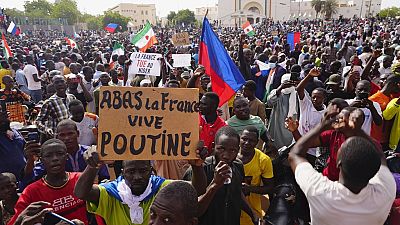

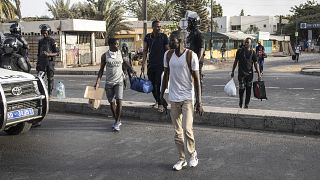
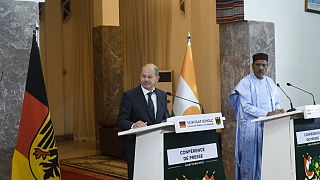
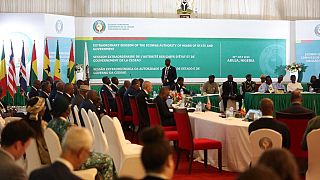
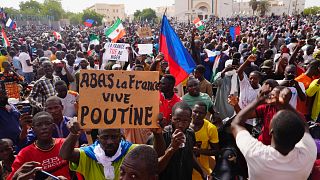





Go to video
Ruto's $9M mega church sparks outrage amid Kenya's crisis
Go to video
“I can’t do nuttin’ for ya man”, Nigerian Minister quotes Flavour Flav in rejection of Trump policy
01:02
Bill granting head of Mali's junta, Gen. Assimi Goita, five more years in power signed into law
Go to video
U.S. slashes visa duration for some African nationals amid policy shift
Go to video
Nigeria snubbed at White House summit, opposition blames Tinubu
Go to video
Ghana cracks down on gold smuggling with new multi-agency task force